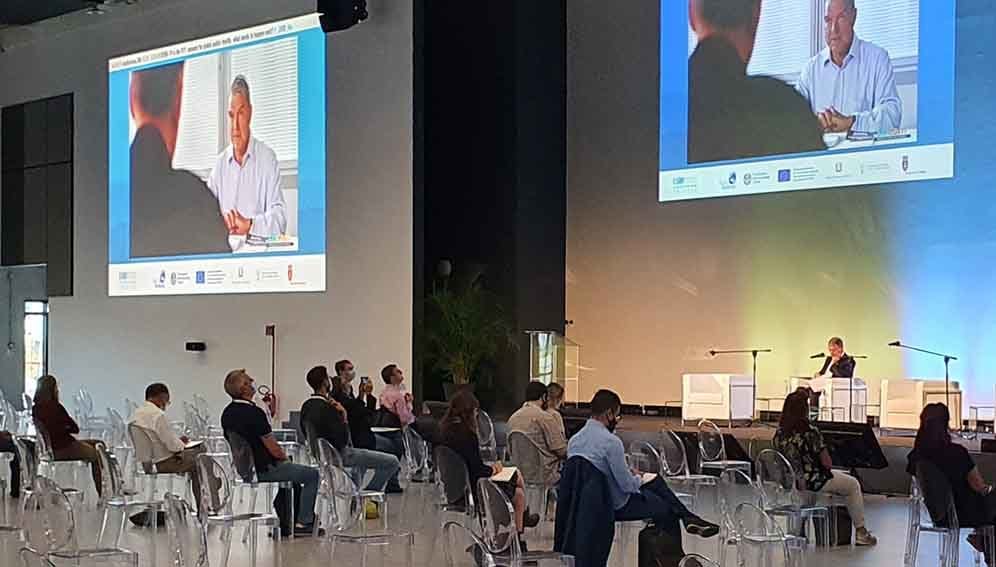04/09/20
COVID-19 solutions coming from South, conference hears

By: Fiona Broom
Send to a friend
The details you provide on this page will not be used to send unsolicited email, and will not be sold to a 3rd party. See privacy policy.
[TRIESTE, ITALY] The COVID-19 outbreak has turned the global science order on its head and means many solutions are coming from the global South, a European science conference has heard.
“If you think retrospectively, the AIDS crisis — at least from the 1990s — and certainly the Ebola crisis and some other global threats were global, but basically, they were crises in the South with solutions coming from the North,” said Michel Kazatchkine, special advisor to the Joint United Nations Program on AIDS (UNAIDS) in Eastern Europe and Central Asia.
“This time, it’s a 360-degree crisis, everyone is in the same mess — no treatment, no vaccine… Solutions may well come from the South,” Kazatchkine told the EuroScience Open Forum (ESOF) today.
“COVID-19 is just a warning bell of worse to come. This is the moment not merely to deal with the virus, but to deal with the underlying issues that make this virus and this epidemic more severe.”
Salim Abdool Karim, chair, South Africa’s Ministerial Advisory Committee on COVID-19
Since it was first identified in China at the end of 2019, COVID-19 has infected more than 26 million people globally, according to the latest data from Johns Hopkins University, and led to almost one million deaths.
COVID-19 vaccines are being developed in China, Brazil, South Africa and Russia, Kazatchkine says. “The entire order is shifting and if we succeed in reconstructing the architecture for multilateral dialogue it will certainly be on a different basis than the one we’ve been using.”
The meeting heard how future international collaboration platforms will need to consider global power shifts towards developing countries.
Lidia Brito, Latin America and Caribbean science director at the United Nations Educational, Scientific and Cultural Organization (UNESCO), told the meeting that science communities around the world need to collaborate to strengthen science systems, particularly across the developing world.
“Many of the solutions are coming from the global South,” Brito told the conference. “That means that we need to work together, also scientifically, in order for those solutions to become global solutions.”
All people have the right to access the benefits of research and knowledge, Brito said, as she called for open science and communication between civil society and scientists.
The panel issued pleas to heads of state, the UN and the World Health Organization to repair and strengthen international cooperation.
Michinari Hamaguchi, president of the Japanese Science and Technology Agency, urged the international community to adopt the principles of transparency, inclusiveness and fairness.
“For me, what is important is prompt sharing of scientific knowledge internationally,” Hamaguchi said. “Science can connect people.”
Warning bell
As the world prepares “not just for the second surge but for new pandemics”, building global governance for public health is vital, says Salim Abdool Karim, epidemiologist and chair of South Africa’s Ministerial Advisory Committee on COVID-19.
“This is the moment not merely to deal with the virus, but to deal with the underlying issues that make this virus and this epidemic more severe,” Karim says. “COVID-19 is just a warning bell of worse to come.”
Karim says the challenge in global governance is not the lack of structures or processes, but a failure to recognise that all communities are connected.
“We have a broken belief system where people believe: ‘I can be safe when you are not safe’… We have an incorrect starting point, our paradigm is built on a fundamental premise that is wrong,” he said.
“I’m only safe when you are safe. That means that we really see the importance of the ‘we’ of our collective good.”













